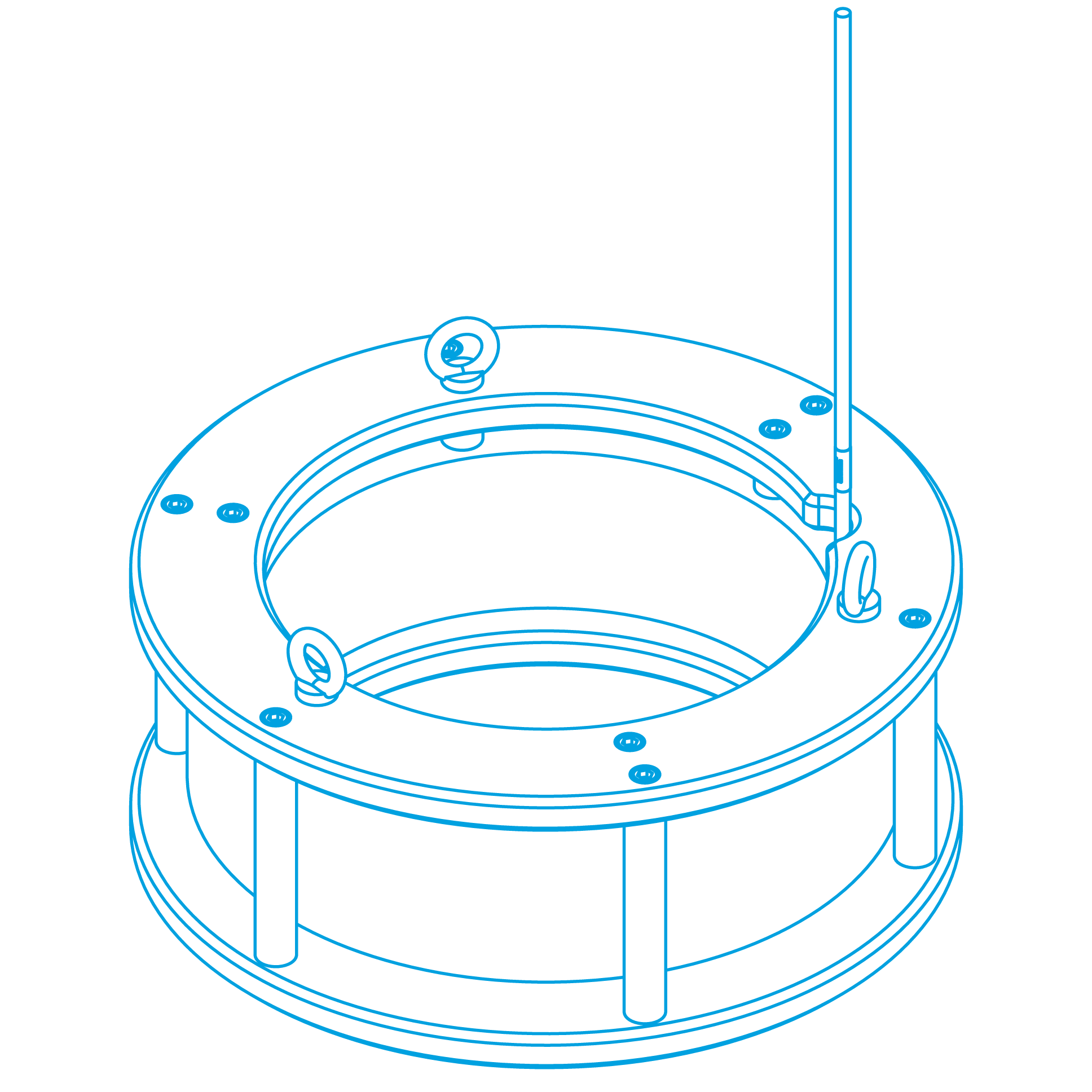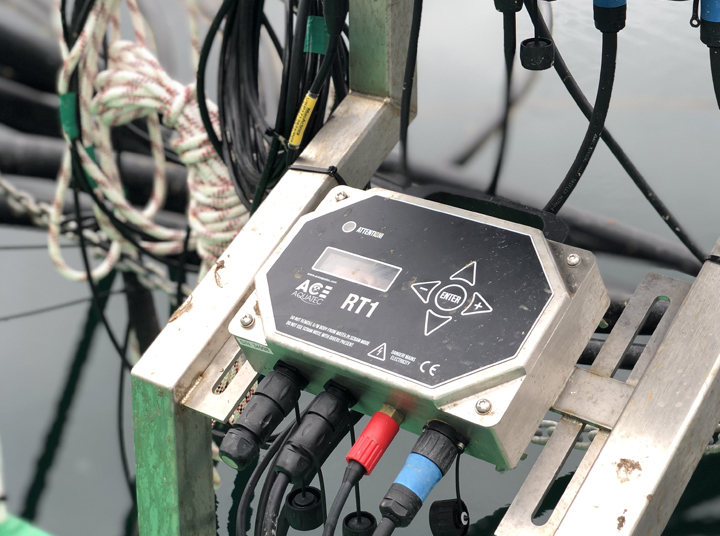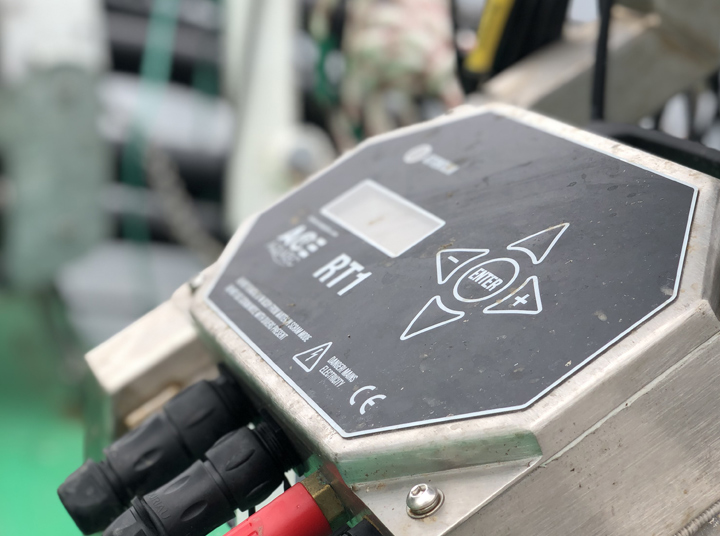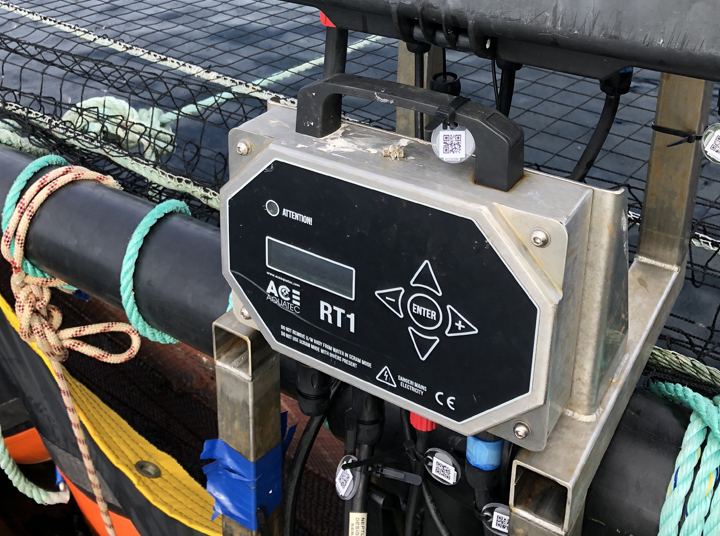What it is and how it works
The Flex and Ring Acoustic Startle Response devices protect farmed fish from predators without harming marine mammals. They target marine predators, such as seals and sea lions, but avoid the specialised hearing ranges of dolphins and porpoises.
A triggered mechanism produces a low-frequency sound to startle any predators. It delivers randomised frequencies and tonal patterns to prevent seals and sea lions from becoming accustomed to the sounds.
The signal requires less acoustic output into the water than older-generation barrier systems. It takes only ten milliseconds from the start of the noise to reach its peak to create a physical response in marine mammals which they cannot ignore.
Key features
The Low Frequency Acoustic Startle Response device is an effective solution that meets high animal welfare standards.
Meets NOAA's MMPA draft guidelines
Modular, easy to use with plug and play technology
Minimises noise pollution
Ramp down, soft start
Academic validation
- Randomised sound pulses that reduce the chances of habituation and deafness (Southall 2007)
- Short duration bursts, safely presented at higher source levels than longer ones (Goetz 2008)
- Produces most energy below 5kHz for least impact on cetaceans (Goetz 2008), (Olesiuk 2012)
- Utilises lower frequency sound to avoid the sensitive hearing range of porpoises (Kastelein 2011)
- Reduced predation rates - 50% improvement over existing systems (Whyte 2015)
- Designed to be audible above localised ambient noise yet avoid injury to hearing (Olesiuk 2012), (Turnbull and Terhune 1990, 1995), (Jacobs & Terhune 2002)
Welfare and sustainability
- Targets the hearing of seals and sea lions, avoids the hearing range of porpoises and dolphins
- Very low impact on high frequency cetaceans
- Outside the hearing ranges of farmed fish
- Often only a few systems are required resulting in a low power draw
- Trigger system ensures the devices are only used when needed
- Rechargeable batteries
Collaborations and further research
The low-frequency Acoustic Startle Response device has been developed in collaboration with the Sea Mammal Research Unit at University of St Andrews to maximise impact on seal predation whilst reducing impact on non-target species.
Our Rapid Response Project in collaboration with SAIC and SMRU shows no evidence of an effect from a low-frequency ASR device on porpoise detection rates over long-term deployment, as sound output is well below peak porpoise hearing sensitivity range. As regards current requirements for EPS licenses, this study provides vital information to regulators and key stakeholders to understand the effectiveness on seals and negative impact on other wildlife, such as porpoises.
In 2018, Ace Aquatec received a Queen’s Award for Innovation for low-frequency Acoustic Startle Response technology.
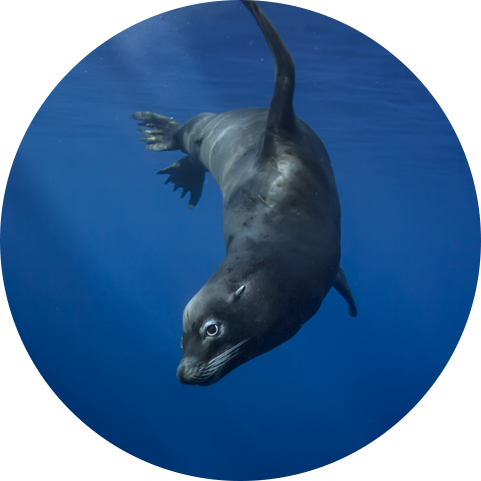

“We have worked with Ace Aquatec for a number of years to reduce the impact seals have on our Orkney farms. Their system survived some severe winter storms, and the fact that we can monitor remotely is an added bonus.”
Richard Darbyshire, Scottish Sea Farms
Get more information
You can find more details about the Low Frequency Acoustic Startle Response device in our case study and fact sheet. Take a look.
Let’s talk
Discover how the Flex and Ring Low Frequency Acoustic Startle Response device can transform your operations.
Other products
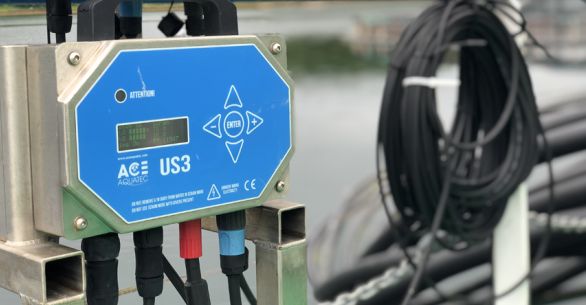
A-ASR® US3
The Mid-Frequency Acoustic Startle Response device is a humane and effective way to protect farmed fish from predators, such as seals and sea lions. Our award-winning technology first conditions predators to avoid low volume noise, and then a conditioning signal across a wide range of frequencies provokes a startle response.
Learn more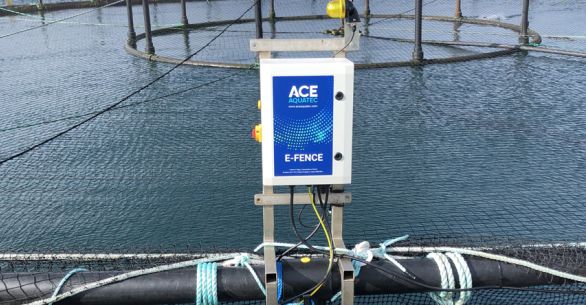
ESR A-EFENCE®
Protect your fish farm against seal and sea lion break-ins with our non-acoustic A-EFENCE®. The A-EFENCE® is a marine grade surface electric fence designed for marine environments to keep seals and sea lions out of fish farm enclosures.
Learn moreOur customers

